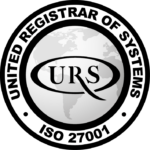Incoming Callers are being increasingly blamed in recent published information for the increase in call center fraud.
Fraudsters calling in are taking advantage of the pandemic and cashing in on the vulnerabilities of contact center agents – who are highly susceptible to social engineering while also having access to vital and valuable information including the ability to grant access to accounts.
This poses tremendous risks to any organization through
- Reputational damage
- Complaints
- Poor customer service
- Non-compliance with regulations such as PCI DSS and
- Many other data protection directives
Who are the other Baddies?
What has not been touched on at least publicly is the increase of fraud coming from the other direction, i.e., the agent, or someone pretending to be the agent.
Many contact center operations have a proportion of remote agents, sometimes used for seasonal variations in call volume. Having agents work from home is easier than providing a desk.
With agents working from home, there is a hidden danger of fraud emerging from unauthorized proxy agents masquerading as authorized agents.
These could be family members or friends who see this as nothing more than a big economic opportunity. They could also be malevolent fraudsters intent on harvesting personal information or payment card data.
Quite recently, overseas call centers were charged with call center agent fraud.
Rogue agent fraud poses all the reputational and non-compliance risks plus actual fraud loss and/or identity theft.
Since the arrival of Covid, many call centers are hiring remote agents. And that may not be changing any time soon; projections are that even post pandemic contact center staff will spend between 50% and 100% of their time working from home. This gravely increases the risk from unauthorized agents gaining access to corporate platforms.
The Insidious Problem – Unapproved handovers
To protect against unauthorized agent access, businesses must invest in strong voice authentication for their remote agents. Because there can be collusion between the authorized and unauthorized agent, any authentication method that relies on shared information like passwords, PINs, token generators, USB keys etc., will not solve the problem. Neither can authentication be simply at the point of accessing the platform, which can be performed by the authorized agent who then hands control to the proxy.
The Need for Continuous Voice Verification- Trusted Agent Authentication
Trusted Agent Authentication is a continuous voice biometric authentication of the agent which not only ensures the correct person is accessing the system initially, but also detects any change of agent.
- Firstly, it authenticates agents at the point of login – when the remote (or even non-remote) agent connects to the network or telephone platform.
- Secondly and crucially, it continuously authenticates the agents as they speak naturally during their calls providing complete confidence that customers are always talking to the correct person! This continuous authentication occurs throughout the entirety of each individual call, ensuring that even intra-call changeover is detected. It is invisible to the remote agent and will alert supervisors immediately should a non-authorized user be detected.
Benefits of Trusted Agent
The continuous voice authentication will ensure that no unauthorized agents are working as proxies and will protect customers from such agents. Additionally, for call centers, it will
- Prevent reputation risks and compliance fines related to PCI-DSS and GDPR.
- Dramatically reduce fraud, e.g., stolen card details, other data theft, monetary loss.
- Reduce risking lost customers through untrained personnel.
To learn more how ValidSoft provides the “Trusted Agent” authentication please schedule a demo or reach out to us at contact@validsoft.com
Like this post? Spread the word!


